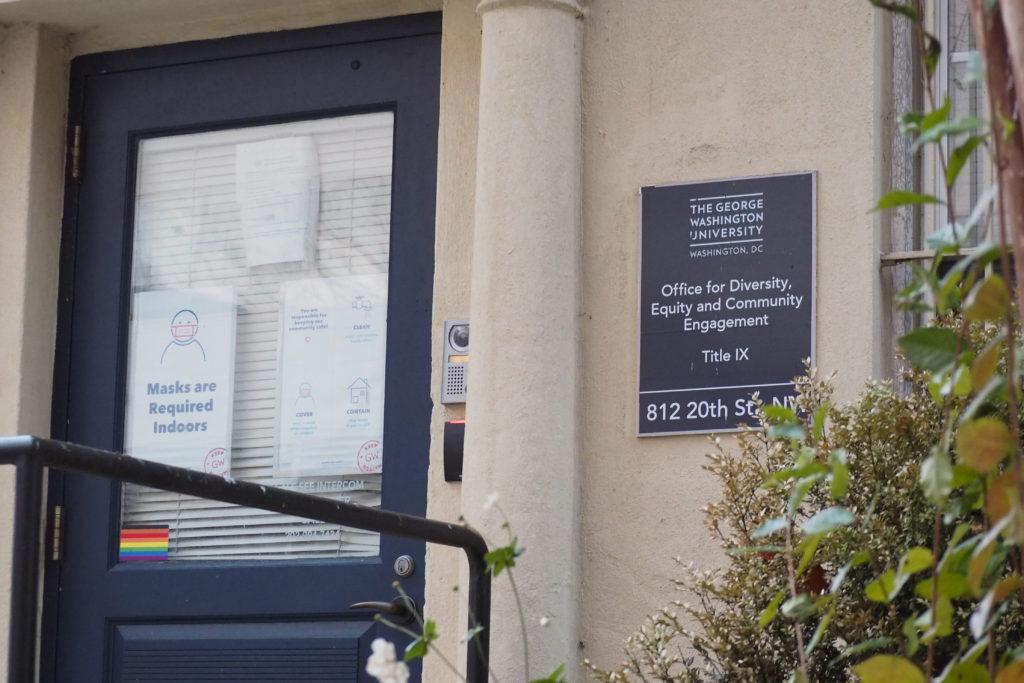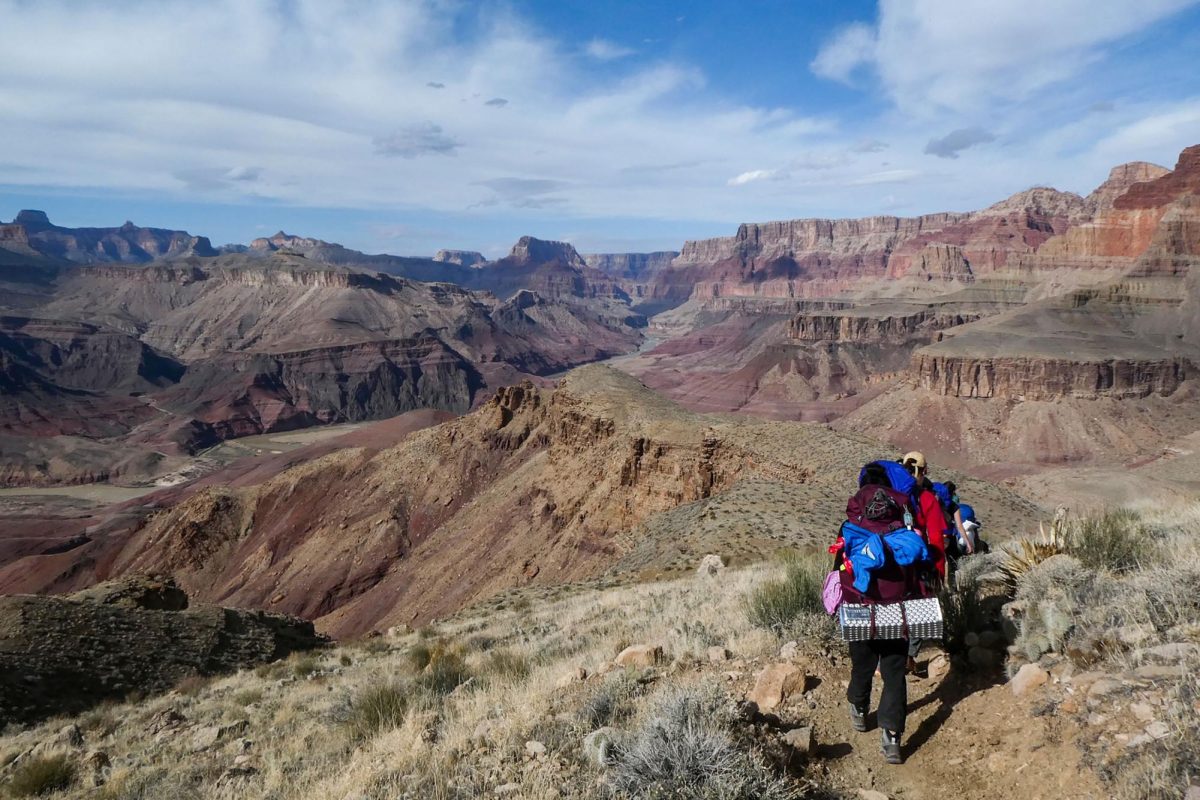Officials are adding new staff positions and expanding training measures in multiple offices to reform their response to Title IX cases following pressure from students.
Officials said in a statement issued late last month that they will enhance training for students, faculty and staff after appointing a training supervisor in the GW Police Department to engage with Students Against Sexual Assault and the Office of Advocacy and Support, which also posted a new prevention specialist position listing. Officials said they hope the changes will begin to improve students’ experiences with the Title IX Office, and students said they will continue to hold the office accountable for their commitment after alleging earlier this fall that they mishandled cases.
Student leaders have said the University’s response to Title IX violations failed to protect sexual assault survivors from their abusers through a lack of communication and failures to bar assailants from campus. About 75 students marched by the site of Commencement on the National Mall in October to silently protest GW’s handling of sexual assault cases and demand a more detailed barring process for those with Title IX violations.
Title IX officials announced in October that they filled three vacant positions this past summer with a new Title IX investigator, an assistant director for sexual assault prevention and response and a case manager and hearing administrator. Officials are currently searching for a response coordinator to conduct “prompt outreach” following a report, according to the statement.
“First and foremost, we regret any circumstance where students did not feel valued or did not feel that our response met their needs,” the statement reads. “We were deeply impacted by the statements made by members of our community and feel responsible to take action. We acknowledge the hurt and harm that was conveyed, and we emerged from that discussion resolute in our commitment to improving student experiences with the Title IX Office.”
University spokesperson Crystal Nosal did not immediately return a request for comment.
Title IX officials said they will release a calendar of “prevention events” early during the spring semester and will look to partner with student organizations as part of expanded education efforts. The office will also research the training programs offered at orientation for incoming students at market basket schools to guide GW’s “tiered education and prevention” that starts next year, according to the statement.
GWPD’s training supervisor will work to ensure officers are properly trained when in contact with survivors of sexual assault, according to the release. The release states GWPD officers met with SASA to address survivors’ concerns and backed their recommendation to clarify the University’s barring policy, which students said lacked standardization.
“First interactions are often the most important, and GWPD strives to get this right,” the statement reads. “GWPD will continue to promote the use of safety apps such as GW Guardian and SafeRide for anyone that feels unsafe while navigating campus, particularly during evening.”
Among other reforms, the Office of Student Rights and Responsibilities is incorporating “trauma informed best practices” as part of its annual training for professional staff members and students, faculty and staff who hear cases on student conduct violations. The release states SRR also adjusted the language of its communications, noting that students who were unwillingly drugged may dispute policy violation reports, after receiving student concerns that GW’s alcohol and drug amnesty and Good Samaritan procedures did not sufficiently include those students.
“When SRR receives a report from an identified source and additional information is needed to determine our course of action, the office will reach out to that reporting party,” the statement reads. “Anyone who would like additional follow-up to their report can request that at [email protected] and they will typically receive an initial response within three business days.”
Shira Strongin, a co-president of SASA, said the group has been working with Christina Hunsicker, the sergeant of special services at GWPD who serves as the point of contact for all special populations, including victims of racism and homophobia and survivors of sexual assault. Strongin said having a point person at GWPD for these populations of students is “a really positive step,” and Hunsicker has been receptive to hearing students’ criticism of GWPD.
“Having worked with her so far, I’ve been fairly impressed, which is a high bar,” she said. “She’s very engaged, and she’s also very transparent about the flaws of the University. And that’s refreshing to see from an administrator.”
Strongin said administrators still need to prove to survivors of sexual assault that officials will implement the changes outlined in the release because SASA has seen “empty promises” from GW before. She said students’ concerns with the Title IX Office predate its staffing issues, and while filling positions is necessary, short staffing cannot entirely explain past lapses in communication.
“There is no trust between us and the administration at this point, and so they really do still have a long way to go in proving themselves and proving that they’re going to do what they’re going to say they’re going to do,” she said.
Will Hoadley-Brill, another co-president of SASA, said while the response from the University is a step in the right direction, the six-week gap between the statement and the listening session that SASA hosted with survivors and administrators was “disappointing.”
“It wasn’t an acceptable amount of time to pass, but the statement has been put out and we will continue to do our jobs, which is to work with administrators, work with student organizations, work with staff and faculty to make sure that survivors of sexual violence are supported on this campus,” he said.
He said organizing student power around the issues and concerns that survivors of sexual assault voice will be crucial moving forward, even after the statement. Hoadley-Brill said the group is working with students and other student organizations to ensure that officials implement the changes to last into future years.
“There’s this tendency for things to be very visible and then disappear, I think at GW but also generally in the world,” he said. “And we’re very much hoping that this push this past semester is just the start of our campus really reckoning.”








